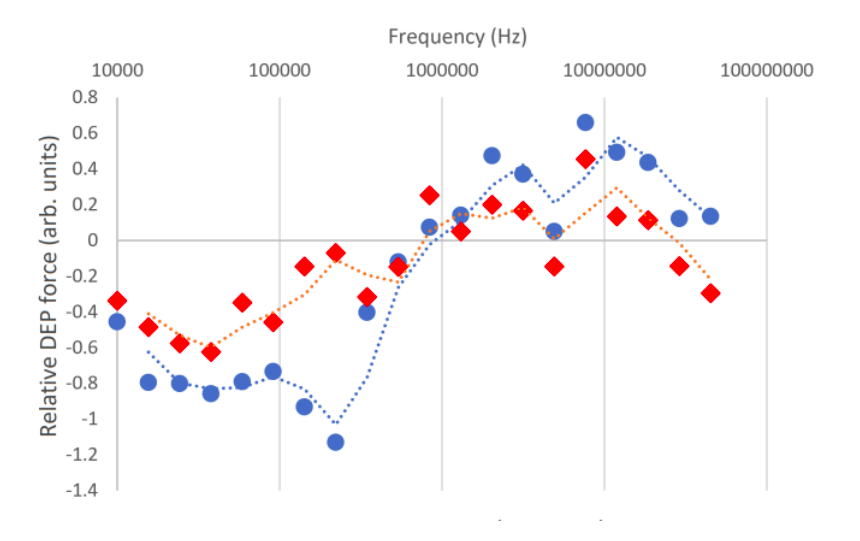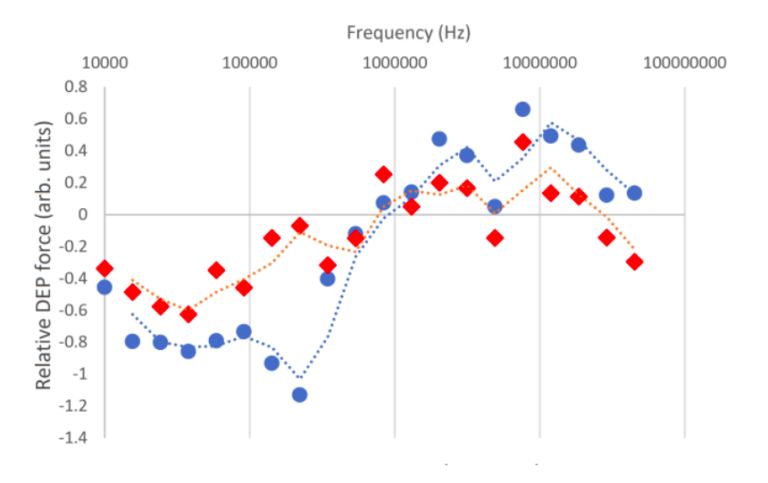
Bladder cancer is the 9th most common cancer worldwide. Diagnosing bladder cancer typically involves highly invasive cystoscopy, with followup monitored using uteroscopy. Molecular methods have been developed as an adjunct to this, but tend to be expensive or require expert operator input. Here we present a study of the use of dielectrophoresis (DEP) of voided cells from eight cancer-presenting patients and eight healthy controls as an alternative low-cost and operator-independent method of bladder cancer detection. This study suggests that there are statistically significant differences (p=0.034) between characteristics of the DEP spectrum of clinical samples, and that using this marker we were able to obtain sensitivity of 75% and specificity of 87.5%, in line with many molecular methods; exclusion of samples where a DEP spectrum is not present (due to low cell counts) shows this can be improved by increasing the cell collection rate. As samples were analyzed a day after collection, we suggest that the method may be amenable to a centralized mail-in analysis service.

